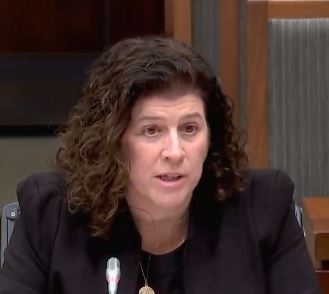ArriveCan, a 60 million dollar “affaire”
TORONTO – Auditor general Karen Hogan did not mince words today to highlight the “flaws” in the management of ArriveCan, the infamous “app” imposed by the federal government led by Justin Trudeau during the Covid-19 pandemic to control the health and vaccination status of travelers entering Canada. “Glaring disregard” for the most basic management practices, Hogan said, referring to the procurement contracts for the creation and maintenance of the “app”, in fact a fairly simple but particularly expensive platform: 59.5 million dollars ( public), therefore even more than the 54 million dollars previously estimated.
But the true cost is “impossible” to calculate due to “poor financial record-keeping by the CBSA” Hogan stressed during the presentation of her report. In the audit, Hogan then highlighted the failures of the Canada Border Services Agency (CBSA), the Public Health Agency of Canada (PHAC) and Public Services and Procurement Canada (PSPC) in relation to their work on the “app”: in particular, according to Hogan, the CBSA mismanaged the contracts and left out “essential information” such as deliverables and qualifications, from them. And even the invoices that the CBSA paid, contained few, if any, details about the work completed. In fact, among the contractors examined, 18% of the invoices submitted did not provide sufficient information to determine whether their expenses were for ArriveCan or another IT project. And then: between April 2020 and October 2022, the CBSA released 177 versions of ArriveCan “with often little or no documentation of testing” including the June 2022 update that saw 10,000 travelers receive incorrect quarantine instructions.
And all of this was happening while the average daily cost for enforcement by outside contractors was $1,090, while the average daily cost for equivalent tools within the federal government was $675. “The practices for managing ArriveCan were lacking at the most basic levels” the auditor general wrote in her report.
But the most disconcerting thing is how the companies that “worked” on ArriveCan were selected. In January, Canada’s procurement ombudsman Alexander Jeglic combed through ArriveCan’s contracts, warning about irregular procurement and reports of subcontractors who never actually worked on the app. Hogan’s report confirms this, finding little documentation to support “how and why” the small consulting firm “GC Strategies” was awarded the initial ArriveCan contract.
The audit also found evidence that the group was even “involved in defining the requirements” used by the CBSA to tender a competitive contract.
Then, “GC Strategies” subcontracted work on the “app” to other companies, retaining a commission. But Hogan’s team, after reviewing all available documents, was unable to determine which agency official made the final decision to select GC Strategies.
In conclusion, Hogan issued eight general recommendations, including one that calls on affected federal departments and agencies to improve their fiscal management, fully document interactions with contractors, and attach clear deliverables to contracts awarded. “Public servants must always be transparent and accountable to Canadians for their use of public funds. Many questions that parliamentarians and Canadians ask are not answered”.
The only certainty is that almost 60 million public dollars have been squandered. For someone’s benefit.



